Plastic In the Ocean
Written by Taylor Tsacoumis
Source : https://ali.fish/blog/plasticintheocean?rq=tsacoumis
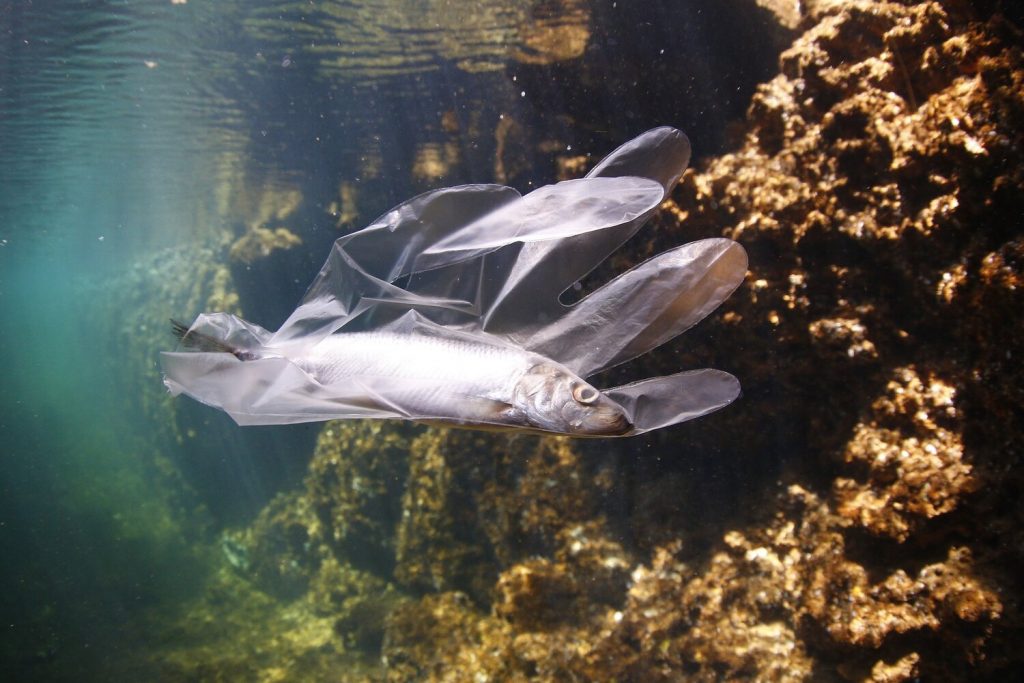
Every year 8 million metric tons of plastic is added to the oceans, 236,000 tons are microplastics. This is equivalent to one garbage truck being dumped into the ocean every minute. These piles of debris floating in the ocean create ‘garbage islands’ like the well known Great Pacific Garbage Patch which contains 1.8 trillion particles of plastic and is more than twice the size of Texas.
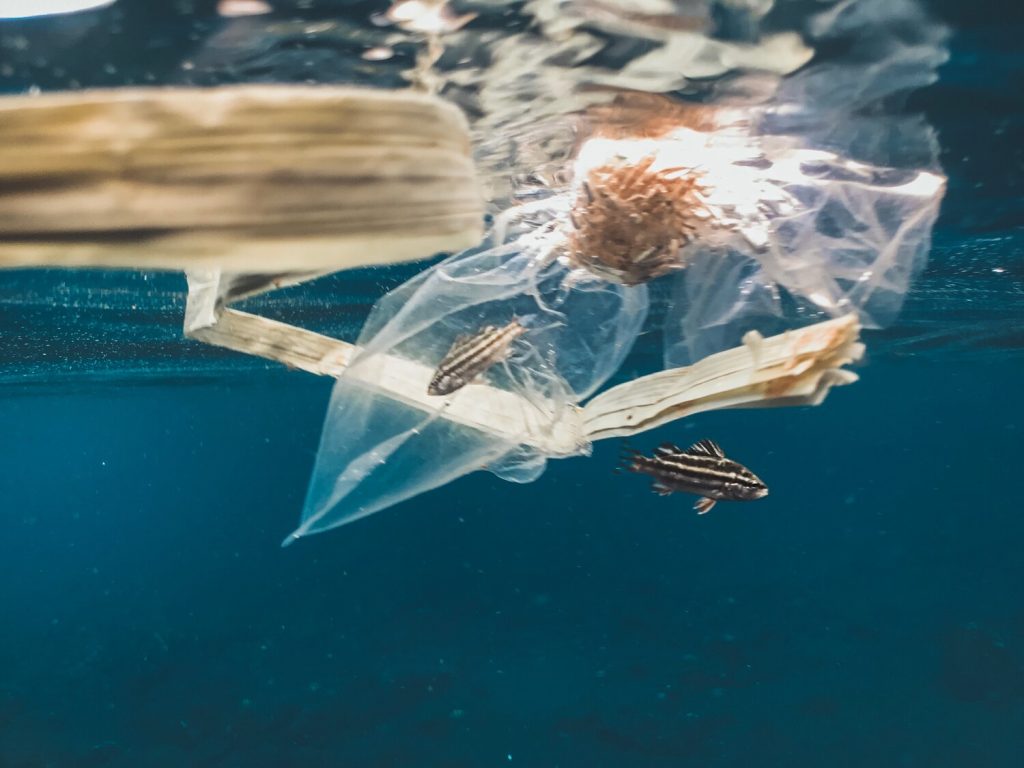
Tiny pieces of degraded plastic, synthetic fibers and plastic beads, collectively called microplastics, have turned up in every corner of the planet—from the sand on a beach to a glacier in the arctic. This means that the probability of ingesting plastic in every bite of food or sip of water you take, is very high. Ingested microplastic particles can physically damage organs and leach hazardous chemicals. Both microplastics and these chemicals may accumulate up the food chain, potentially impacting entire ecosystems. Although it is not proven yet what the effect of consuming plastic is, scientists have linked it with causing a variety of health issues including: disruption in hormones, cancers, and weakened immune systems.
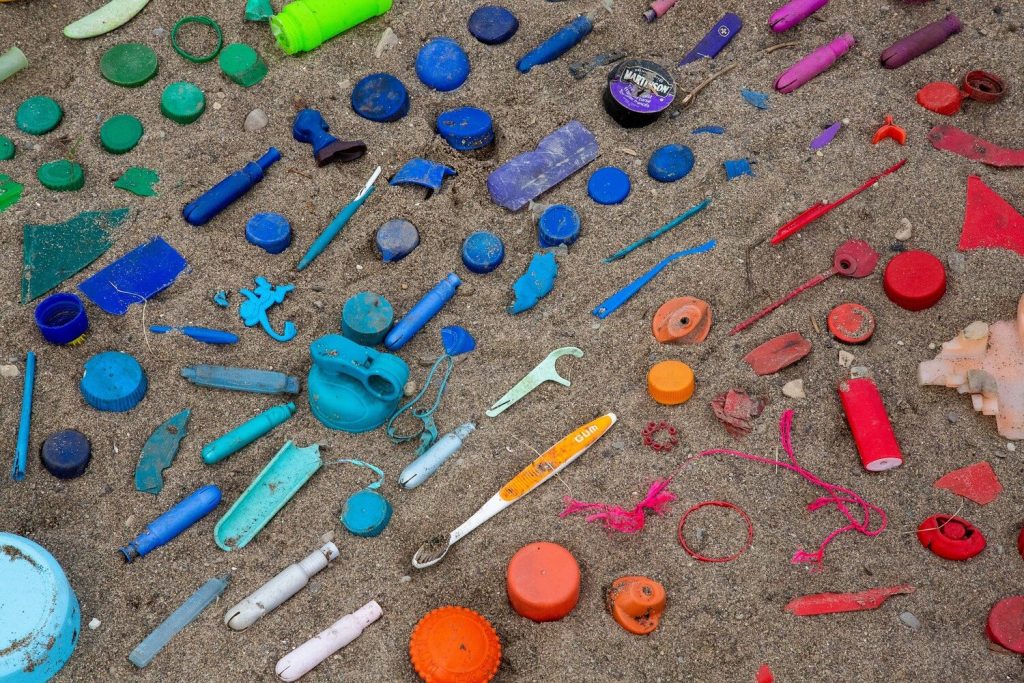
Plastic is a relatively new material that didn’t start becoming popular till the 1950’s, since then humans have produced nearly 8 billion tons of plastic. Of the plastic collected, fragments of microfibers were the most common, they come from textiles such as nylon and polyester, which enter the ecosystem through washing machine wastewater. Single-use products labeled “biodegradable” which appear to be a sustainable alternative are a misrepresentation. Companies mislead consumers into thinking these products are compostable or recyclable but truthfully, they only break down in a very high heat industrial composting facility. When these products end up in a lake, river or ocean, they’re essentially the same as plastic. If you do toss products labeled biodegradable into the recycle bin, they won’t be recycled because they aren’t recyclable. Of the waste produced in 2017, only 8.4% was recycled instead it is being dumped into landfills, stockpiled, or burned. When plastic ends up in landfills it then takes 200 years for a plastic straw to break down and 500 years for a KCup or plastic toothbrush.
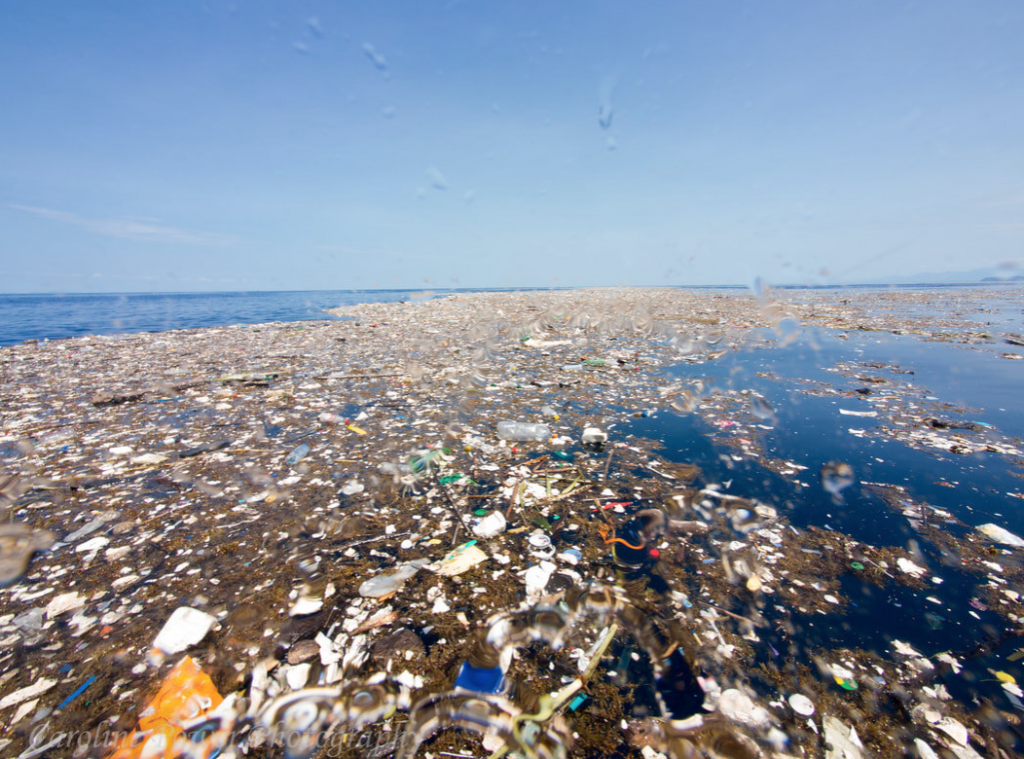
This leads to 100,000 marine mammals dying globally every year. There are two ways that encountering marine debris can be fatal for these creatures: ingestion or entanglement in plastic-based fishing gear. Marine creatures often mistake floating plastic for prey and when ingested it can form a mass and consequently lead to starvation. Unfortunately, we have become desensitized to the once-disturbing images of marine life being surrounded or even slowly killed by plastic.
In a recent study on microplastics in the deep sea, scientists found plastic particles in every single filter feeder that was studied. These microplastics can be anywhere from the size of a grain of rice to microscopic, and when consumed by fish they can build up in their GI tracts and cause harm. Studies have shown that not only the fish exposed to microplastic reproduce less but also their offspring have also reproduced less. This suggests that the effects can linger on to later generations.
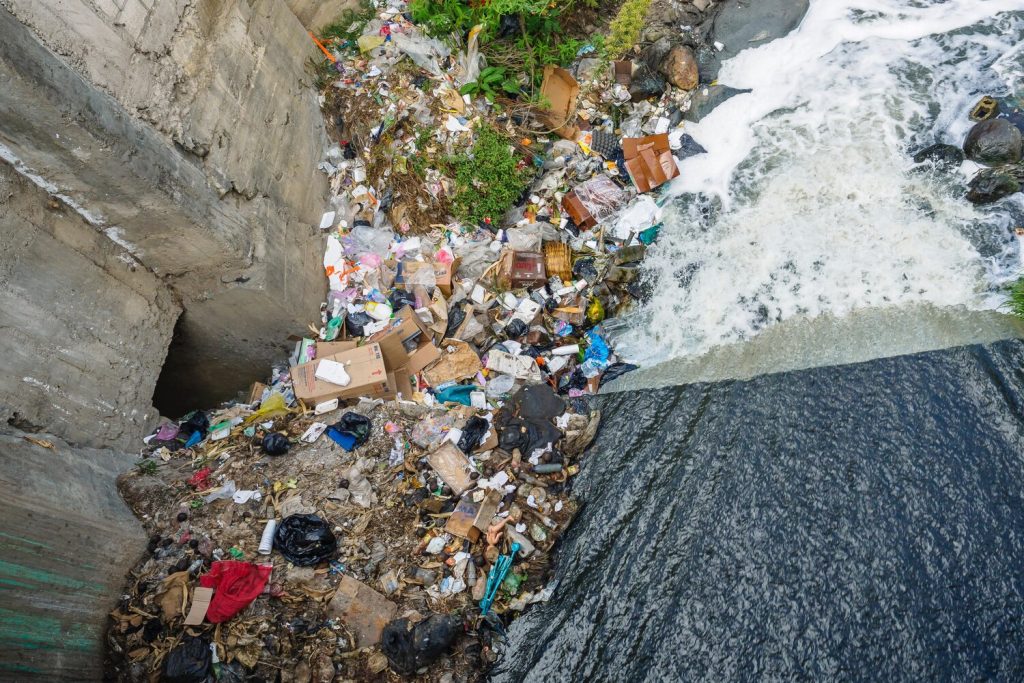
Plastic interferes with all creatures’ search for food: echolocation, sight and smell. While marine organisms primarily use their sense of smell, marine turtles rely on vision, and dolphins and some whales rely on echolocation. It is believed that seabirds and fish are attracted to the smell of plastic, in particular a chemical called dimethyl sulfide. Because organisms are attracted to plastic for different reasons, there is no one-size-fits-all solution.
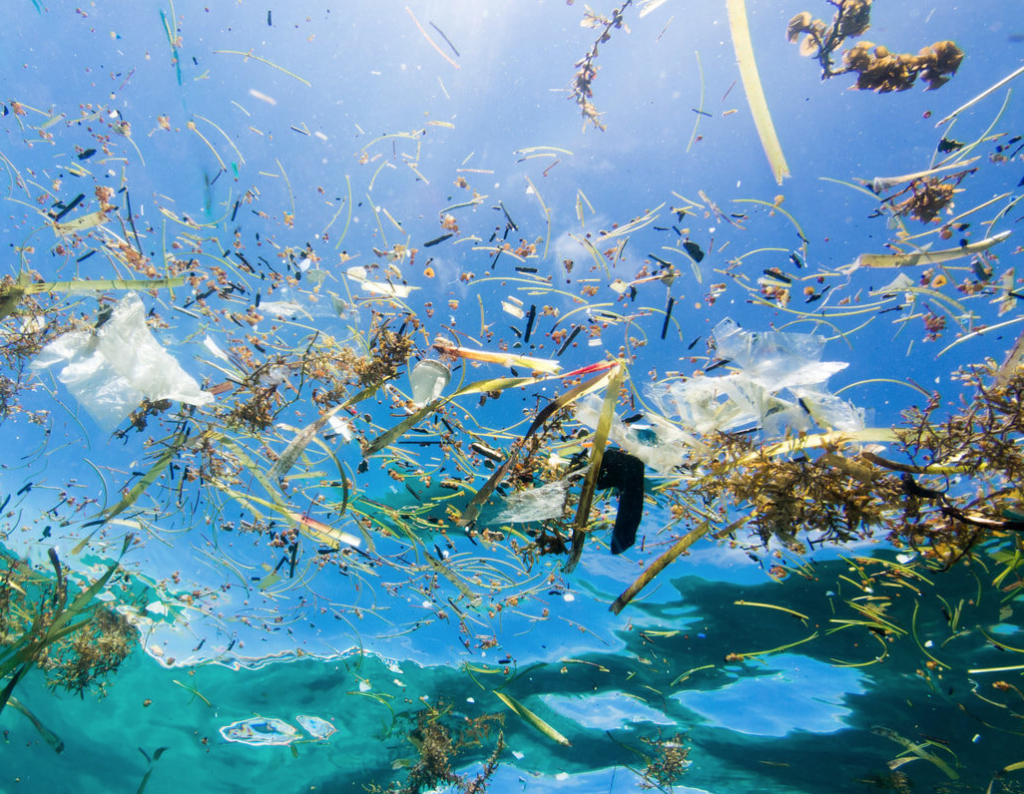
At the rate we are moving, by 2050 there will be more plastic in the ocean than fish. We need to continue to educate ourselves and become more aware of the use and disposal of plastic. The easiest way is to make a conscious effort to use your own cutlery, food containers, bags and bottles rather than using disposable alternatives. As we move into the holiday season try to limit single use materials such as wrapping paper and bows and swap them out for eco-friendly and reusable alternatives.
During these hard times with Covid-19, we as consumers need to do our part to dispose of our Personal Protection Equipment appropriately. With an estimated 194,000,000,000 disposable masks and gloves being used every month, conservationists are fearing the disastrous impact the waste will have on marine life.
Organizations such as OceanHero are making massive strides against plastic pollution. They are a search engine that is unique because for every 5 searches you make, 1 plastic bottle is recovered. You can contribute to fighting alongside them by using their search engine and participating in beach / neighborhood clean ups and limiting single use plastic.
Written by Taylor Tsacoumis